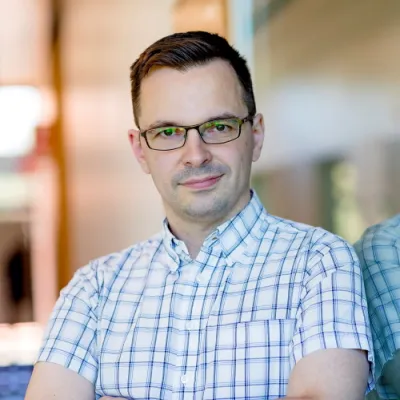Sector integration: Towards a carbon neutral energy system
Our energy system is facing an inevitable transition. The fight against climate change requires cleaner ways of producing energy and more efficient ways of distributing and using it. This development also helps us find solutions to the ongoing global energy crisis. In addition to technical solutions, change is needed on a societal level to take the necessary, major steps towards carbon neutrality.
Sector integration makes it possible to produce, convert and consume energy more sustainably. Through better overall efficiency, it can speed up recovery from the current energy crisis.
The change concerns the entire system and its implementation cannot be achieved by individual actors alone. Instead, new collaborative models are needed. Utilising sector integration to its fullest potential requires different sectors to develop new shared operational models with a clear vision of shared synergies.
On this page:
Download your copy now
Content
This white paper explores sector integration as a phenomenon and presents ways in which the whole society as well as individual stakeholders can benefit from the opportunities of this systemic transition.
- What is sector integration?
- The time for sector integration is now
- Sector integration in practice: Buildings, Mobility, Industry, Hydrogen, Heating and cooling
- Next steps in sector integration
We hope this white paper can also provide a starting point for collaboration and dialogue for operators in different sectors.

Who is this for
This white paper is aimed for all operators in the energy, transportation, construction and other industrial sectors. Also, small and medium-size operators can have a crucial role in the sector integration development.
How VTT can help you?
We can facilitate co-creation between different stakeholders and help you find the right solutions. Our unique understanding of energy systems and different sectors has roots in Finland, a country with a modern power distribution and industrial infrastructure and a high level of digitalisation.
We’re happy to help you determine the next steps and demonstrate how your business could benefit from sector integration.
Writers

Kari has more than 20 years’ experience from smart energy system and energy transition research, complemented with practical experience from industry and utility sides. His research is focused on smart energy systems widely, smart grids, sector integration, role of digitalisation, virtual power plants, storage integration as well as several other system-level issues. In addition to technology, his interests are in business models and market interfaces. He is active in several international collaboration networks, such as CEM, Mission Innovation and IEA ISGAN ExCo. He was also expert secretary of the national working group “Sector integration” appointed by The Ministry of Economic Affairs and Employment in Finland. Recently, Kari was also a visiting scholar at UC Berkeley in California, US with a focus on energy transition topics.

Nearly two decades of experience in energy sector and innovation leadership with deep understanding on systemic aspects of energy transition, related policy and novel technology implementation. He has wide knowledge on energy and technology; systems, evaluation, feasibility and concepts with know-how and experience in extending from research to power plant construction and commissioning. Expert on renewable fuels (H, CCU and biofuels), CCS and decarbonisation of industry, especially iron and steel sector. He is deeply involved in national and European innovation agenda with several positions in european innovation organisations. In addition Antti holds board and advisory board memberships of several innovation institutes and funds. He is also a member in Finnish Climate Change Panel.

Tuula has more than three decades of extensive experience in the energy sector. She has held various leadership and expert positions at VTT with the aim of supporting industry and society in the transition to carbon neutrality and accelerating sustainable growth. Tuula has broad knowledge of smart and flexible energy systems, new energy generation solutions, built environment, low carbon transport solutions and bioeconomy. She has been active throughout the whole innovation value chain: development, demonstration and commercialization of new technologies and solutions. Tuula has a strong background in both international and national cooperation. She is i.a. Member of the Executive Committee of EERA European Energy Research Alliance.
